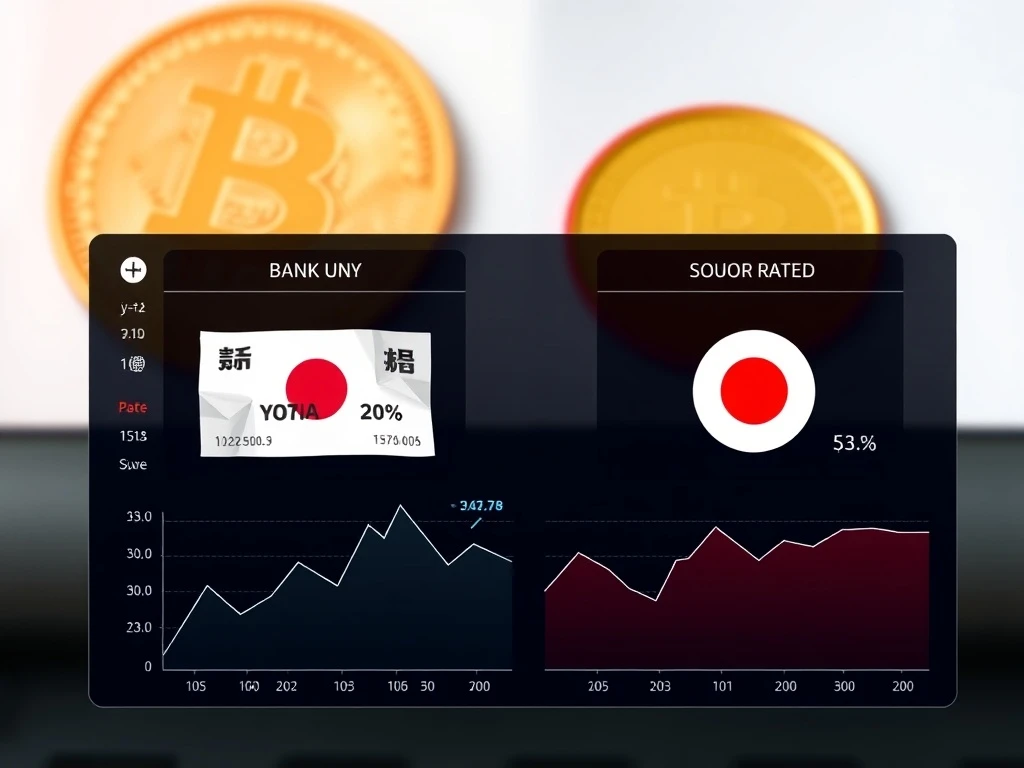BOJ Holds 0.5% Rate as Inflation Surges: What It Means for Crypto and Yen Traders

The Bank of Japan (BOJ) has once again held its benchmark interest rate at 0.5%, a move widely anticipated by markets. But the real story lies in its revised inflation outlook, now projected at 2.7% for 2025. This decision sends ripples across financial markets, particularly affecting yen traders and cryptocurrency investors. Let’s break down what this means for your portfolio.
Why Did the BOJ Hold Interest Rates Steady?
The BOJ’s unanimous decision to maintain the 0.5% rate reflects its cautious approach to economic normalization. Key factors influencing this decision include:
- Improved trade relations with the U.S. reducing export sector uncertainty
- A 1.7% rise in factory output, exceeding expectations
- Ongoing global geopolitical tensions affecting monetary policy worldwide
Inflation Outlook: What Changed for 2025?
The BOJ’s revised inflation forecast tells a compelling story:
| Fiscal Year | Previous Forecast | New Forecast |
|---|---|---|
| 2025 | 2.2% | 2.7% |
| 2026 | 1.7% | 1.8% |
| 2027 | 1.9% | 2.0% |
This upward revision signals growing confidence in Japan’s path to price stability, with the BOJ now viewing inflationary risks as “roughly balanced.”
How the Yen and Crypto Markets Reacted
The policy announcement triggered immediate market movements:
- Japanese yen appreciated against the U.S. dollar
- Bitcoin rose 0.38% with increased trading volume
- Market analysts noted potential for stronger yen-funded crypto trades
This reaction underscores the interconnected nature of traditional finance and cryptocurrency markets.
Global Context: BOJ Joins the Wait-and-See Approach
The BOJ’s decision aligns with a broader trend among central banks:
- U.S. Federal Reserve holding rates steady
- European Central Bank maintaining cautious stance
- Global preference for monetary policy stability amid uncertainty
What’s Next for Japan’s Economy?
While maintaining rate stability, the BOJ will:
- Gradually taper bond purchases
- Monitor inflationary pressures from food costs
- Watch global trade policy developments
Governor Kazuo Ueda emphasized the central bank’s data-dependent approach moving forward.
FAQs: BOJ Rate Decision and Inflation Outlook
Q: Why is the BOJ keeping interest rates low?
A: The BOJ maintains low rates to support economic recovery while carefully monitoring inflation and global economic conditions.
Q: How does the BOJ’s decision affect cryptocurrency markets?
A: Stable rates in Japan can influence yen-funded crypto trades, potentially increasing liquidity in crypto markets.
Q: What does the higher inflation forecast mean for Japanese consumers?
A: A 2.7% inflation rate suggests moderate price increases, which could impact purchasing power but also indicate economic growth.
Q: Could the BOJ raise rates soon?
A: The BOJ appears committed to stability, with any future rate moves likely to be gradual and data-dependent.









